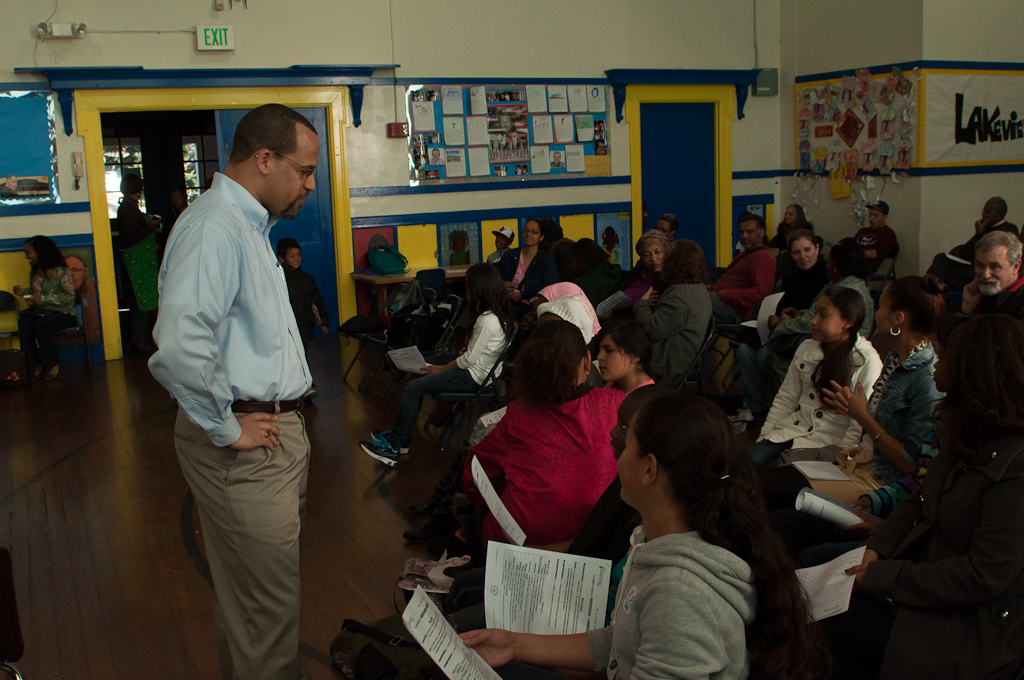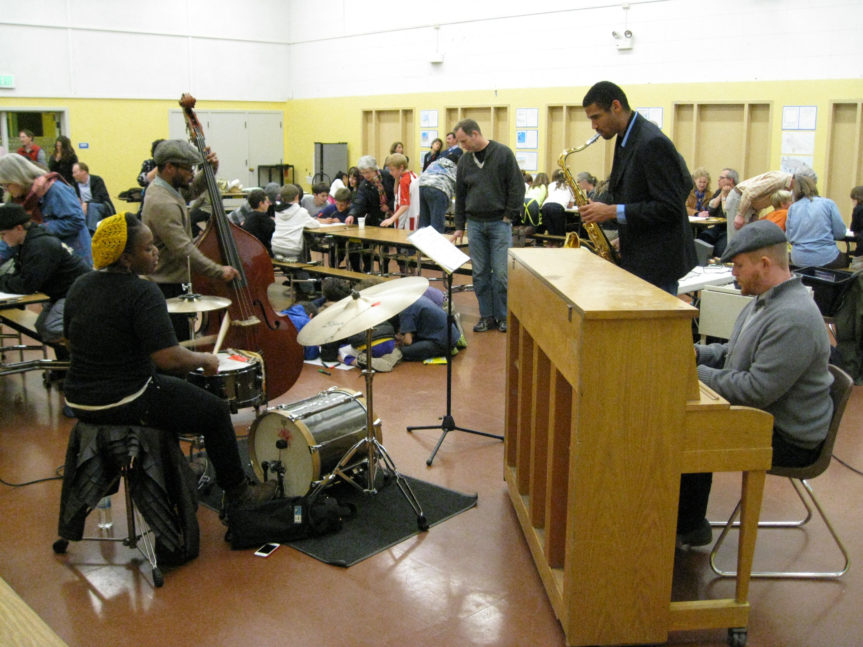“I thought this was a fabulous experience. Our [J&D] professional development provided me with a different and exciting lens through which to engage students.” – Carol Lee Tolbert, Special Ed Teacher, McClymonds High School, Oakland, CA
For you, what is important to know about America? Why does that matter? How might you impart this knowledge to your students? These questions are the starting point of The Jazz & Democracy Project® (J&D) Curriculum Think Tank, both a summer professional development institute and a growing network of 5th – 12th Grade teachers integrating jazz into their history, government, social studies, language arts and music classes. And before we go any further, no, there are no musical prerequisites for you or your students. For over a decade J&D has been teaching all manner of students—locally, nationally and internationally—about democracy through the metaphor of jazz. The July convening of the Curriculum Think Tank makes this possible for you, too, even if you have no background with the art form.
What can jazz possibly teach us about democracy? J&D Founder, Dr. Wes, could speak to you all day about this, but one place to start is the idea of process over product: both jazz and democracy are an approach, one having to do with music, the other with government/society. The success of that approach relies heavily on the contributions of individuals, each playing their part in a collective process. And the quality of the music, or of our shared experience in this nation, results from our integrity of process. Thus, the music we call jazz is less a genre, but rather a way of making music. Similarly, democracy is never a resting place in which we find ourselves, but the way we continually engage one other and our core beliefs. This similarity lays the foundation for us to investigate how good musicians and good citizens, how good band leaders and good representatives in government, and even how good students and teachers behave.

“The primary research documents are presented in a very accessible way. I can use the content to start building a classroom culture immediately.” – Dr. Ajamu Stewart, Ile Omode (4th/5th Grade), Oakland, CA
Last year’s cohort, who were limited to distance learning themselves, immediately found the link between the characteristics of a good jazz musician and a good student, the good band and the well-functioning classroom. In a year where teachers met their students via an internet connection, they used the J&D Exclusive Artist Interviews to help define a learning community that had never shared the stage. This summer’s cohorts promise to include the most engaging part of J&D: simple yet poignant musical activities you can do with your students, plus how to work with live musicians in your classroom.
As you soak up your first few weeks of a well-deserved summer break, spare some thought for this opportunity to make your classroom uniquely engaging next year. J&D’s Curriculum Think Tank begins the week after the July 4th holiday, and will provide a vehicle for you to design lessons specifically with your students in mind. That’s because J&D is far from a pre-packaged curriculum. Drawing from his 12 years of J&D experience, and 40 hours of artist interviews, Dr. Wes will provide just enough structure, and the freedom for you to experiment with lessons you design for the 2021-2022 school year. However, space is limited to cohorts of six: two elementary, two middle and two high school teachers. So, tell a colleague and contact Dr. Wes right away to reserve your place: [email protected].
“I definitely learned about the impact of Jazz, but in a way I didn’t expect. I was thinking J&D would be more about how jazz movements gave way to greater democracy, but I think I learned about how current jazz standards or skills can be used as a framework to create/understand what an equitable democracy would look and feel like to those involved. I think this is even better than what I expected because this is applying jazz to our current world rather than a movement of the past.” – Audrey Arthur, Roosevelt Middle School, Oakland, CA
“For high achieving kids, J&D offers a different lens from which to interpret something they already understand well. For kids that struggle, J&D could be the missing link for connecting to complex curriculum.” – Ross Parker, Berkeley High School Teacher

